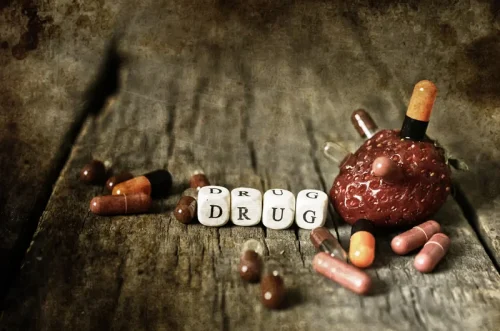
Specifically, both acute alcohol exposure and hippocampal damage impair the ability to form new long-term, explicit memories but do not affect short-term memory storage or, in general, the recall of information from long-term storage. The first hurdle concerned scientists’ understanding of the functional neuroanatomy of memory. In the 1950s, following observations of an amnesic patient known as H.M., it became ptsd alcohol blackout clear that different brain regions are involved in the formation, storage, and retrieval of different types of memory.
In the short term
The most common type is called a “fragmentary blackout” and is characterized by spotty memories for events, with “islands” of memories separated by missing periods of time in between. Below, we lay out the effects of alcohol on the brain and identify the specific drinking behaviors that research says put individuals at the greatest dementia risk. Alcohol suppresses hippocampal pyramidal cell activity in an awake, freely behaving rat. Pyramidal cells often fire when the animal is in discrete regions of its environment, earning them the title “place-cells.” The specific areas of the environment where these cells fire are referred to as place-fields. The figure shows the activity of an individual pyramidal cell before alcohol administration (baseline), 45 to 60 minutes after alcohol administration, and 7 hours after alcohol administration (1.5 g/kg). Each frame in the figure shows the firing rate and firing location of the cell across a 15-minute block of time during which the rat was foraging for food on a symmetric, Y-shaped maze.
Nextep Recovery Services
- Don’t assume that people with ARBI will understand and remember what is being discussed.
- Due to their co-occurrence as part of a continuing progression of the same process, these conditions combined are referred to as Wernicke-Korsakoff syndrome.
- Their metabolism also slows down, so the alcohol stays in their system for longer.
- Caution should be exercised in the case of drinks with high alcohol content.
- Around 2 million Australians are potentially at risk of developing ARBI due to their drinking habits.
- A complete blackout is when a person will be unable to recall events even if they try hard, as memory loss is irreversible.
- However, there is still much yet to be elucidated concerning specific molecular mechanisms of how alcohol affects memory formation.
Abstaining from alcohol leads to partial or complete recovery of cognitive functions, contingent upon factors such as the duration and severity of prior alcohol use, individual health conditions, and genetic predispositions. In the first hours, withdrawal symptoms like anxiety, sweating, and tremors may occur. Over the following days and weeks, sleep patterns improve, energy levels increase, and cognitive functions gradually recover. Long-term benefits include reduced risks of alcohol-related diseases and improved overall health.

What happens to your body day by day when you stop drinking?

Boca Recovery Center is here to provide the best quality care in the treatment of drug and alcohol addiction. Yes, many people are able to talk, eat, walk, and engage in complex behaviors while experiencing an alcohol-related blackout. People who drink many alcoholic beverages in a short period are at risk of blacking out. Treatment options for alcohol abuse include inpatient care (where you move into a facility) and outpatient care (where you live at home). The individual who is confabulating to fill in missing information may not be lying in the literal sense of the word.
Nicki’s long-term career goals include advancing in leadership roles within Virtue Recovery Center which is a quickly growing substance use disorder treatment facility. She hopes that one day her research and advocacy will help to save the lives of those who have been affected by substance use. She likes to say that advocacy is her passion and leadership is her superpower. The five signs of alcohol poisoning include confusion, vomiting, seizures, slow or irregular breathing, and hypothermia (low body temperature). These serious symptoms require immediate medical attention to prevent potentially fatal consequences. Other National Institutes of Health reports have shown that abstaining from alcohol over several months to a year may allow structural brain changes to partially correct.
Alcohol and Your Brain: The Long-Term Impact on Thinking and Memory
Many students, more females (59 percent) than males (25 percent), were frightened by their last blackout and changed their drinking habits as a result. Blackouts represent episodes of amnesia, during which subjects are capable of participating even in salient, emotionally charged events—as well as more mundane events—that they later cannot remember (Goodwin 1995). Formal research into the nature of alcohol-induced blackouts began in the 1940s with the work of E.M.

Recovery Residences

These authors recruited 108 college students, half of whom had experienced at least one fragmentary blackout in the previous year. While sober, members of the two groups performed comparably in memory tasks. However, when they were mildly intoxicated (0.08 percent BAC) those with a history of fragmentary blackouts performed worse than those without such a history. There are two possible interpretations for these data, both of which support the hypothesis that some people are more susceptible to blackouts than others. A second interpretation is that subjects in the blackout group performed poorly during testing as a result of drinking enough in the past to experience alcohol-induced memory impairments. In other words, perhaps their prior exposure to alcohol damaged the brain in a way that predisposed them to experiencing future memory impairments.
- Popular media and some celebrities with drug problems glamorize blacking out, and not being able to remember what happened the night before is the topic of many fun-filled tales.
- Many students, more females (59 percent) than males (25 percent), were frightened by their last blackout and changed their drinking habits as a result.
- A large-scale study that followed participants for 27 years found moderate alcohol consumption — defined as one to two drinks a few days a week — didn’t have an increased risk of dementia.
- Yes, memory loss from alcohol progresses into more serious conditions like Alcohol-Related Brain Damage (ARBD) and alcoholic dementia.
- Only 1 student out of 50 reported that the most recent blackout occurred after drinking beer alone.
This could happen if someone drinks on an empty stomach or consumes large amounts of alcohol in a short amount of time. Because females, on average, weigh less than males and, pound for pound, have less water in their bodies, they tend to reach higher https://ecosoberhouse.com/article/fetal-alcohol-syndrome-overview/ peak BAC levels than males with each drink and do so more quickly. This helps explain why being female appears to be a risk factor for having blackouts. There are two types of blackouts; they are defined by the severity of the memory impairment.
- Blackouts can be partial (fragmentary) or complete (en bloc), implying that someone may forget a portion of their evening or the whole night.
- Understanding the dangers of binge drinking is essential for preventing memory issues and protecting overall brain health.
- The researchers tested their memories after the first hour by showing them images and asking them to recall the details two minutes, 30 minutes and 24 hours later.
- High alcohol concentrations can cause loss of consciousness, temperature dysregulation, impaired breathing, and heart failure.
Short-Term Memory Loss from Alcohol
During a blackout, a person may engage in activities Sober living house but later have no recollection of them because alcohol impairs the brain’s ability to form new memories. Heavy alcohol use can cause permanent damage to the brain, leading to long-term memory loss and conditions like alcohol-related dementia, where cognitive decline becomes severe. The degree of impairment increases along with the level of alcohol intake. Despite their inability to form new memories, short-term memory function still works.
- In these cases, some memories may be lost while the brain may also lose its ability to create new memories.
- Drinking to the point of a blackout has gained pop culture notoriety in recent years.
- It can also affect our ability to create new memories, which is how alcohol can cause blackouts.
- There are other causes of Wernicke-Korsakoff syndrome that are not related to alcohol; in these cases, the disorder can be found in a wide range of individuals outside of those who drink alcohol.
Older people
An alcohol-induced blackout combined with other alcohol intoxication symptoms can result in risky and reckless behaviors. It is typically impossible to tell if someone is having a blackout, as they can still function normally. Alcohol-induced blackouts are often only recognized after the fact due to an inability to remember things. It may be possible to tell if someone is blacking out by their inability to remember recent events that happened more than a few minutes ago. The most effective way to prevent alcohol-related memory problems is to moderate alcohol consumption or avoid drinking altogether. Alcohol’s impact on memory is dose-dependent, meaning the more a person drinks, the more likely they are to experience memory impairment.
Leave a Reply